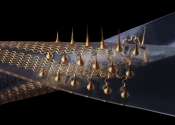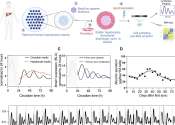COVID-19 pandemic changed attitudes toward wearable health devices, study finds
The COVID-19 pandemic significantly increased interest in wearable health-monitoring devices among low-income Hispanic and Latine adults living in the U.S., a new Northwestern University study has found.
May 8, 2024
0
0









